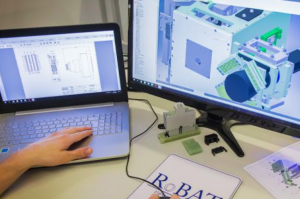Margin pressures keep earnings static for Vindon

PROFITS at scientific storage company Vindon Healthcare have remained static, despite an 18.5% increase in half year revenues, as rising costs put pressure on margins.
Although the Rochdale-based group saw revenues rise to £3.13m for the half year to the end of June 2011 (2010: £2.64m) pre-tax profits remained virtually the same at £434,000 (2010: £433,000).
It said the revenues boost was the result of increased equipment sales and the maintenance of high levels of contracted storage revenue, despite challenging market conditions in the pharmaceutical sector.
Liam Ferguson, chairman of Vindon, said: “During the first six months of the year we secured substantial orders for installation of environmentally controlled chambers for customers in Ireland. This made a significant contribution to sales of manufactured equipment, which were ahead of management’s expectations for the period.”
However, the rise in turnover was largely offset by reduced margins and increased administration and depreciation costs.
Gross margins were adversely affected by costs resulting from the development of new methods of site installation. Administrative expenses were also higher due to increased costs associated with the group’s Irish operations, and costs for professional fees relating to potential acquisitions.
Mr Ferguson said: “Margins are likely to remain under pressure in our markets. We have on-going initiatives to improve profitability by improving efficiency whilst maintaining the quality of our products and services. Significant product development is also planned to widen the range of equipment offered to our existing and potential customers.”
“We are committed to improving the profitability of the Group through the expansion of the business organically, and we continue to evaluate strategic acquisition targets.”
Mr Ferguson added that the group’s future pipeline of work was at its highest for four years, with future income amounted to £4.2m (2010: £3.9m).
Vindon specialises in making controlled storage equipment and selling storage space. It caters for pharmaceutical and biotech firms and has the capability to store human stem cells, but also looks after priceless artefacts. Its client list ranges from drugs giants such as AstraZeneca and GSK to the Tate art gallery.







